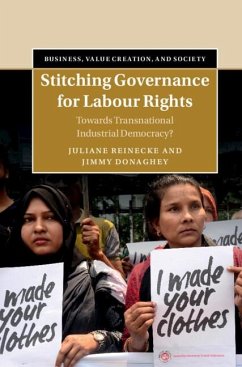Transnational labour governance is in urgent need of a new paradigm of democratic participation, with those who are most affected - typically workers - placed at the centre. To achieve this, principles of industrial democracy and transnational governance must come together to inform institutions within global supply chains. This book traces the development of 'transnational industrial democracy', using responses to the 2013 Rana Plaza disaster as the empirical context. A particular focus is placed on the Bangladesh Accord and the JETI Workplace Social Dialogue programme. Drawing on longitudinal field research from 2013-2020, the authors argue that the reality of modern-day supply chain capitalism has neither optimal institutional frameworks nor effective structures of industrial relations. Informed by principles of industrial democracy, the book aims at enhancing emerging forms of private transnational governance as second-best institutions.
Dieser Download kann aus rechtlichen Gründen nur mit Rechnungsadresse in A, B, BG, CY, CZ, D, DK, EW, E, FIN, F, GR, HR, H, IRL, I, LT, L, LR, M, NL, PL, P, R, S, SLO, SK ausgeliefert werden.









